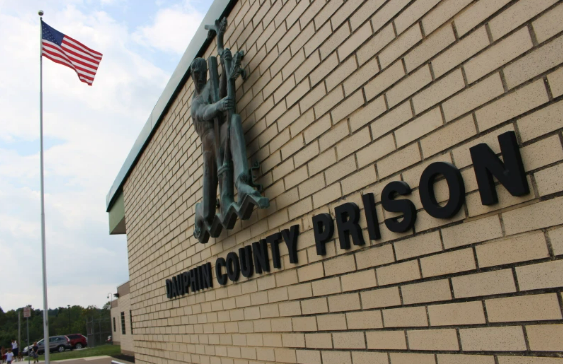Lawsuit Alleges Pennsylvania Prison Withheld Necessities
Allegations include deprivation of necessities from toilet paper to showers

Persons who were formerly incarcerated at Dauphin County Prison filed a federal class action lawsuit yesterday alleging that prison leadership created inhumane living conditions for over a month in 2023. The lawsuit, submitted to the Middle District of Pennsylvania court, outlines a series of grievances, including confiscating inmates' toilet paper, limited showers and cut power and heat, and seeks to hold the prison accountable for its treatment of incarcerated individuals.
At the heart of the claim is the allegation that officials retaliated against inmates suspected of smoking synthetic marijuana by punishing entire cell blocks by confiscating legal paperwork, withholding necessities like toilet paper, soap and warm clothing, and cutting power and heat. The lawsuit alleges more than just the loss of privileges; it claims inmates' basic rights and needs were disregarded by the prison officials.
The criminal justice corrections system should not be intended to compromise or undermine an individual’s human dignity. In Germany, for example, Article I of its constitution, known as the Basic Law, reckons with the history and horrors of the Holocaust and states plainly: “Human dignity shall be inviolable. To respect and protect it shall be the duty of all state authority.” The concept is the basis of international human rights law developed in the aftermath of World War II as a direct response to the dehumanizing bureaucratic horrors of the Holocaust.
Human dignity has elevated status within the laws of many countries, and is the foundational value in the constitutional documents of Costa Rica, the Czech Republic, Estonia, Germany, Greece, Hungary, India, Israel, Italy, Japan, Lithuania, Poland, Portugal, Slovakia, South Africa, Spain, and several other countries.
Although the phrase “human dignity” does not appear in the U.S. Constitution, the Supreme Court has ruled in a number of cases that the concept animates and even underlies many of the amendments contained in the Bill of Rights, as well as subsequent constitutional amendments. Specifically applied to the criminal justice system in the United States, the Court has relied on the concept of human dignity to limit punishment and protect the rights of those imprisoned (Eighth Amendment), limit unreasonable searches (Fourth Amendment), and the right to represent oneself (Sixth Amendment).
Despite a larger commitment to human dignity, most countries, the United States foremost among them, a standard of human dignity does not guide the law or policymaking processes. The Court has occasionally offered sweeping generalizations about the application of human dignity to people in prison, but it has never used this concept to do more than ensure that incarcerated people are supplied with their basic needs or to condemn truly degrading treatment.
The Court has never created a clear standard of human dignity and no legislation in the United States explicitly affirms obligations regarding human dignity. There are no half measures when it comes to human dignity, and that is the last bastion preventing dehumanization of "others;" including all incarcerated persons in this country.
A commitment to human dignity does not undermine the fundamental correctional priorities of safety and security. In fact, human dignity demands that everyone behind the walls—staff as well as those incarcerated—is kept safe and secure.
Support and solidarity to the formerly incarcerated persons included as plaintiffs in this lawsuit. Either we are a society committed to and supportive of human dignity for all, or we aren't.
You can read more about the lawsuit, "Suit Seeks Damages After Warden Cuts Power and Heat, Plunging Dozens In Solitary Confinement Into Darkness, Cold for Weeks in Dauphin County," at the Abolitionist Law Center, a public interest law firm and community organizing project that challenges the criminal punishment system in Pennsylvania.










